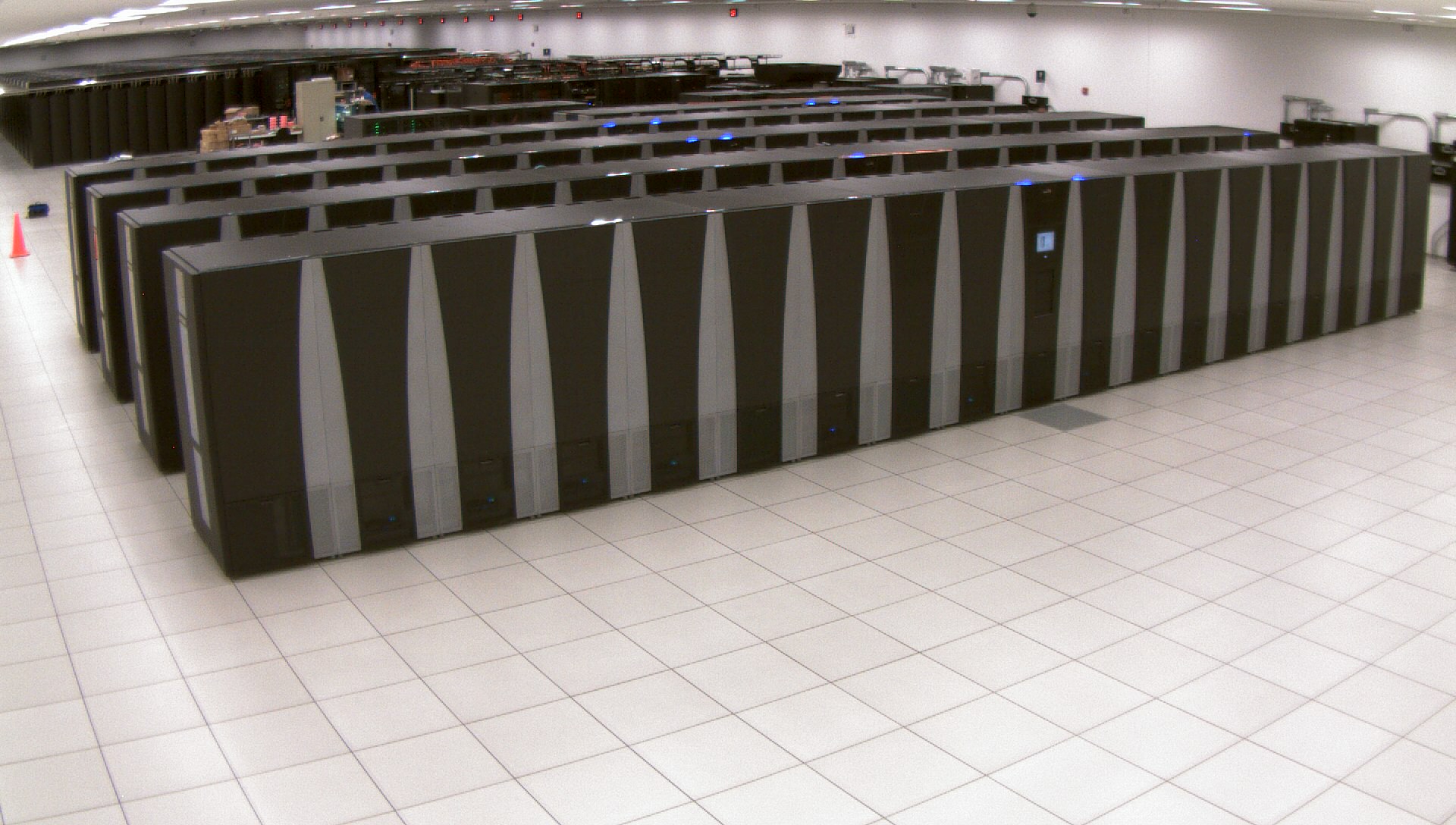NCSA's 11.5 PFlops Blue Waters Supercomputer in Testing
The National Center For Supercomputing Applications (NCSA) has opened its Blue Waters system to the science community.
The new supercomputer entered into "friendly-user" mode and is now accessible by National Science Foundation-approved science and engineering teams. NCSA said that "selected" users "will have access to the entire system during this window in order to help the Blue Waters team test and evaluate the full system and to expedite the Petascale Computing Resource Allocation (PRAC) teams' ability to use the full Blue Waters system productively as soon as it is in full production status."
Blue Waters, a $188 million system, which was originally designed to be based on IBM architecture, consists of "more than" 235 Cray XE6 cabinets based on "more than" 49,000 AMD Opteron 6200-series processors, as well as "more than" XK6 30 cabinets based on "more than" 3,000 Nvidia Tesla GPUs.
The expected peak performance will exceed 11.5 petaflops, according to the NCSA. Total nearline storage space will be more than 500 PB.
Contact Us for News Tips, Corrections and Feedback
Get Tom's Hardware's best news and in-depth reviews, straight to your inbox.

Wolfgang Gruener is an experienced professional in digital strategy and content, specializing in web strategy, content architecture, user experience, and applying AI in content operations within the insurtech industry. His previous roles include Director, Digital Strategy and Content Experience at American Eagle, Managing Editor at TG Daily, and contributing to publications like Tom's Guide and Tom's Hardware.
-
monktongaz I don't know about Crysis, but just imagine what this baby could do with Football Manager 2013.Reply -
grantwar Really? crysis and football manager...I think you guys are missing the bigger picture here!Reply
Just imagine Solitaire running on that beauty :) -
jn77 I could put that to good use with Photoshop and Premier for 4k video editing 10000x speedReply -
memadmax vittauIt takes some serious creativity and ingenuity to program for 49.000+ cores.Reply
Not really, all you have to do is create a loop that creates worker threads for all the cores. -
silverblue I bet they also have an excuse as to the CPU choice... "well, it seemed a good idea two/three years back...". :PReply -
wiyosaya memadmaxNot really, all you have to do is create a loop that creates worker threads for all the cores.And have a data set that you can split into 49,000 parts. :)Reply
